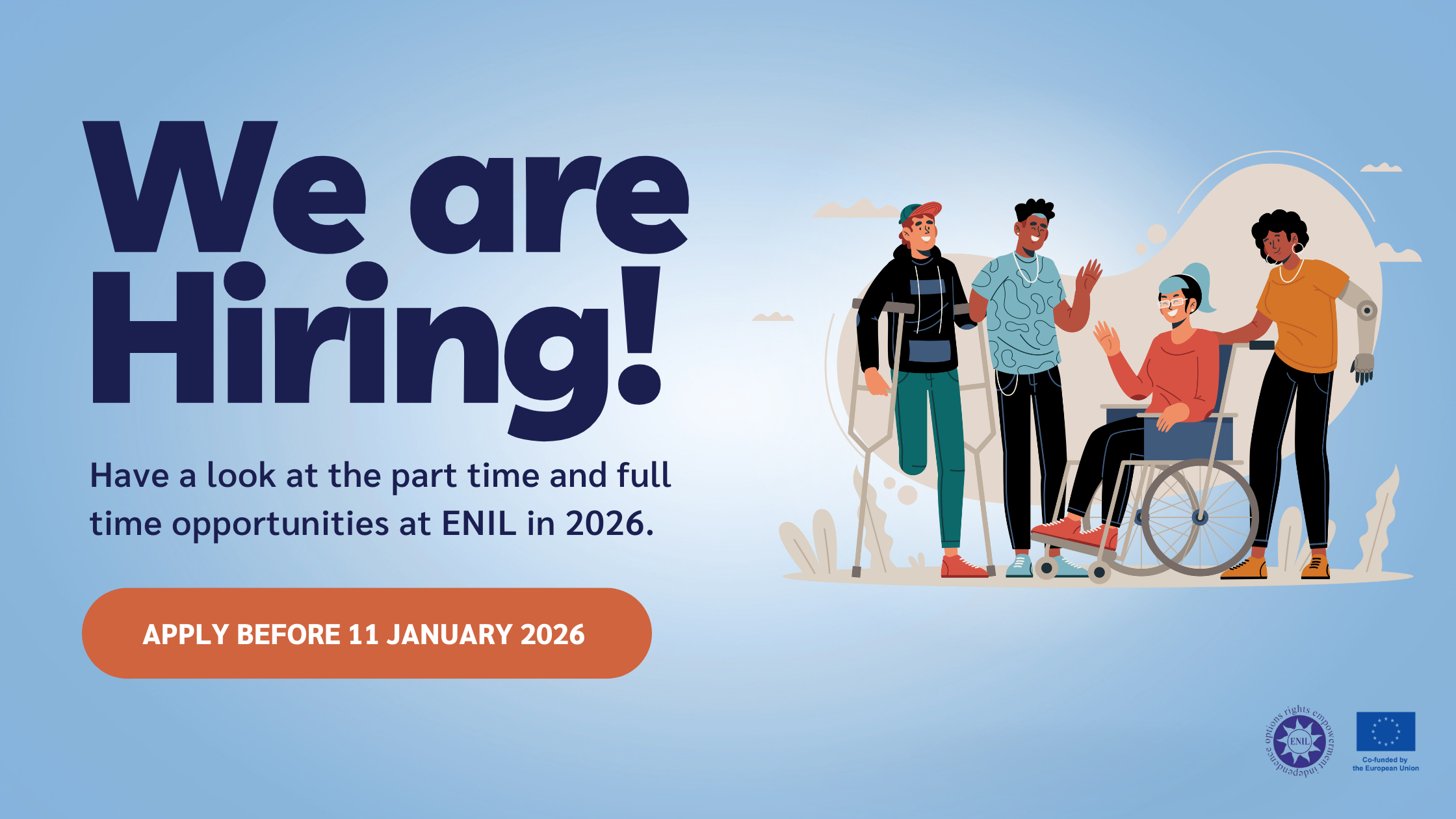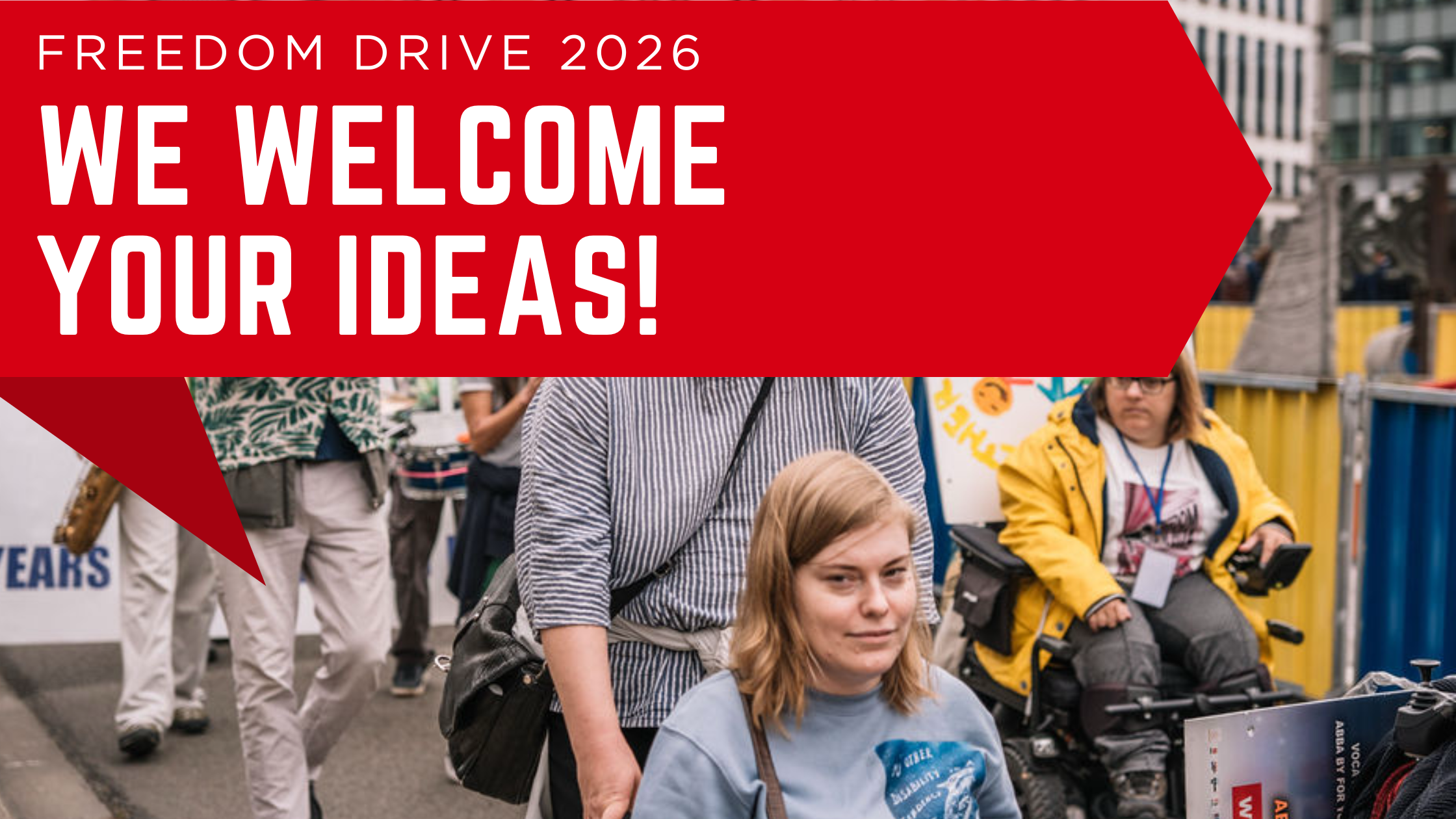Brussels, 26/02/2018 – NGOs are demanding the suspension and redesigning of deinstitutionalisation projects managed by the Hungarian government with funding from the European Commission. According to the Hungarian Civil Liberties Union (HCLU), the Validity Foundation (formerly the Mental Disability Advocacy Centre) and the international organisation, the European Network on Independent Living, the scheme to ‘deinstitutionalise’ 29 large institutions breaches national and international laws. The projects, which affect 2,500 people with disabilities and are valued at nearly 24 billion HUF (76 million EUR), are funded by the European Union and will result in further segregation of people with disabilities in hundreds of new mini-institutions. As such, the current scheme must be halted.
In January 2017, the Hungarian Government published a Call for Proposals on Human Resources Development Operational Programme 2.2.2 – 17. Conversion of institutional supply to community-based services – replacing institutional places (EFOP-2.2.2.-17). The aim of the programme is to close down institutions housing large numbers of people with disabilities, to increase their inclusion in the community, and provide individualised support, so that they can live independently. Institutions providing social care services for more than 50 people were encouraged to apply for grants funded by the European Regional Development Fund, worth 23.7 billion HUF (approximately 76 million EUR).
Analysis of the winners’ applications shows that the projects, which affect 2,430 people, fail to comply with EU regulations on the use of EU funding, its policies on social inclusion and the Fundamental Rights Charter. The building of almost 200 mini-institutions envisaged under the funded projects breaches the European guidelines on deinstitutionalisation, and obligations under the UN Convention on the Rights of Persons with Disabilities (CRPD), as well as national law.
- Many of the group homes which will be built, will be located away from cities in sparsely inhabited rural settlements, thus further ostracising people with disabilities. Many of the settlements chosen lack public services, have aging communities and declining populations. (For example: Bodonhely – 287 inhabitants, Sopronnémeti – 297 inhabitants, Tormásliget – 292 inhabitants, and Fülpösdaróc – 320 inhabitants).
- As it has been pointed out by the Hungarian Association for Persons with Intellectual Disability (ÉFOÉSZ), some group homes will be built on flood plains (Táplánszentkereszt); on inaccessible, industrial zones (Barcs); swampy-reedy areas (Somogyvár), or near a sewage disposal plant (Kéthely).
- In many cases, group homes will be built within the grounds of current large institutions or in the immediate proximity of them (e.g. Táplánszentkereszt, Vésztő, Drávatamási, Kálmáncs, Szabás, Szombathely).
- Residents of the newly built homes will be transported by minibuses to so-called Service Centres which will, in many cases, be established in the area of the former large institutions or in some cases inside of them. People will still eat and be cared for as previously, in an institutional setting.
- The new residential homes will function as mini-institutions, denying people their independence: they won’t be able to decide where and with whom they live, choose their careers, or make choices about their daily routine. Thus, the EU project aimed at eradicating institutions will ultimately result in the creation of 189 new mini-institutions.
For these reasons, the Validity Foundation, the European Network on Independent Living and the Hungarian Civil Liberties Union ask the government to suspend the projects currently under implementation and thoroughly redesign the process. In order to achieve this, the signatories also invite the European Commission to call on the government to ensure that new plans meet the standards of the UN Convention on the Rights of Persons with Disabilities. People with disabilities must be fully involved in all aspects of the new scheme, including planning, implementation and monitoring.
“European funding provides a unique opportunity for governments to support people with disabilities to live dignified lives in the community. Wasting such vast sums of public money on building new mini-institutions robs people of the opportunity of being truly included in society and breaches EU and international law. Should these projects be completed as scheduled before the end of 2018, the new institutions will likely remain in place for decades, denying thousands of people with disabilities their independence. It is essential that the process be halted and redesigned in close cooperation with persons with disabilities and Hungarian civil society,” said Steven Allen, interim Executive Director of Validity Foundation.
Note for the editors:
The following organisations submitted the request to the Hungarian Government to request immediate suspension the implementation of projects under grant scheme EFOP. 2.2.2-17:
- The European Network on Independent Living (“ENIL”). ENIL is a user-led, cross-disability rights civil society organisation, with members in 47 countries across Europe. ENIL represents the disability movement for human rights and social inclusion based on solidarity, peer support, deinstitutionalisation, democracy, self-representation, cross-disability and self-determination. For more information please visit: www.enil.eu.
- The Hungarian Civil Liberties Union (“HCLU”). For over two decades, HCLU has been active in protecting the rights of citizens against undue interference by those in position of public power. The HCLU monitors legislation, pursues strategic litigation, conducts public education and legal empowerment activities and regularly launches awareness raising media campaigns. Their lawyers provide free legal aid in about 2000 cases per year (legal counselling and legal representation) and this number is increasing. The HCLU, with headquarters in Budapest, litigates across the country up to the Hungarian Supreme Court and international human rights forums. The HCLU’s activities cover two major areas: the protection of civil liberties and safeguarding equality for the most disadvantaged groups including persons with disabilities. For more information, please visit www.tasz.hu/en.
- Validity Foundation (formerly known as Mental Disability Advocacy Centre / “MDAC”) is an international human rights organisation which uses the law to secure equality, inclusion and justice for people with mental disabilities worldwide. Validity’s vision is a world of equality where emotional, mental and learning differences are valued equally; where the inherent autonomy and dignity of each person is fully respected; and where human rights are realised for all persons without discrimination of any form. Validity Foundation has participatory status at the Council of Europe, and observer status at ECOSOC. For more information, please visit www.validity.ngo.
*****
You can find a FAQ document on deinstitutionalisation here.


